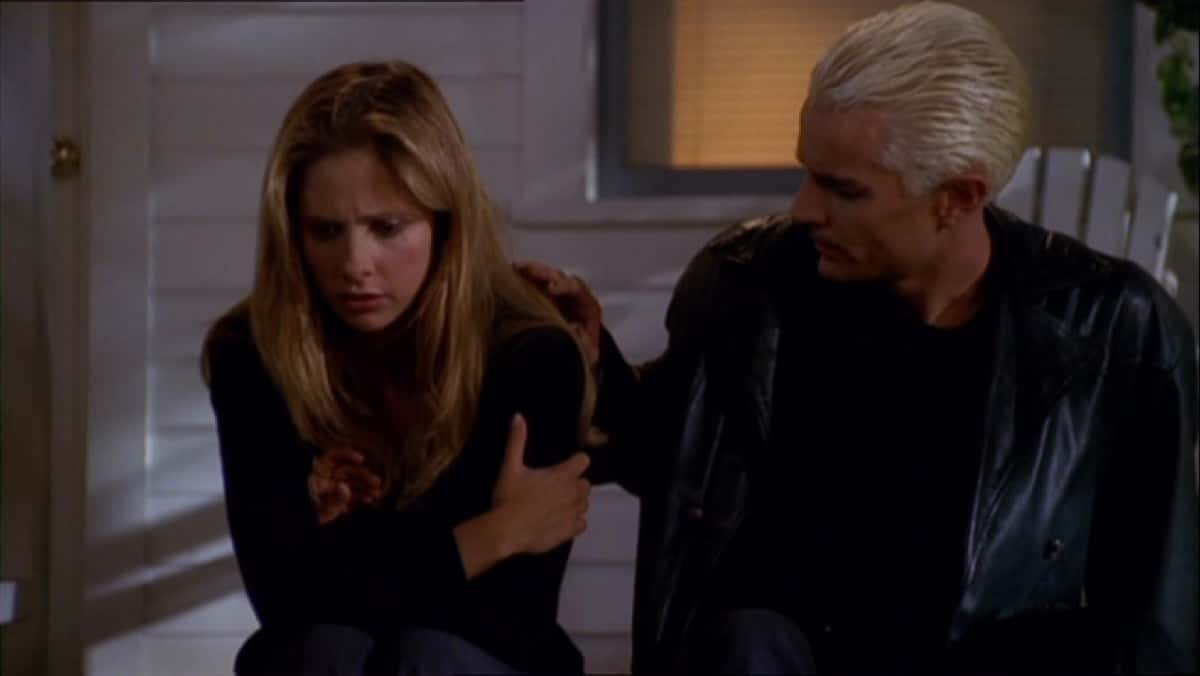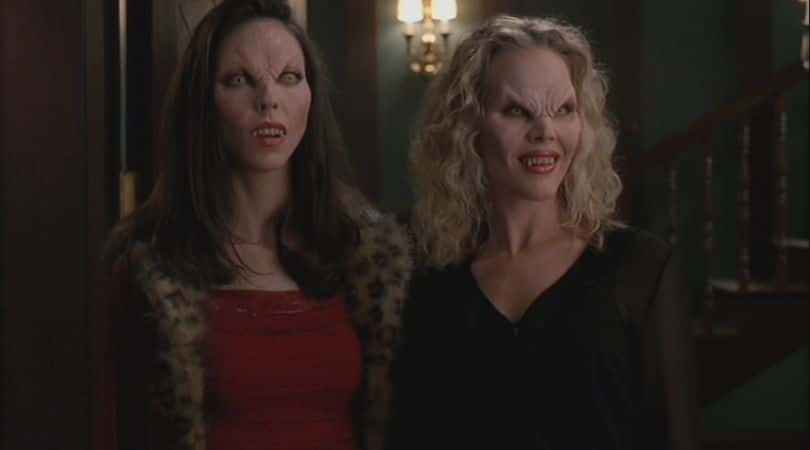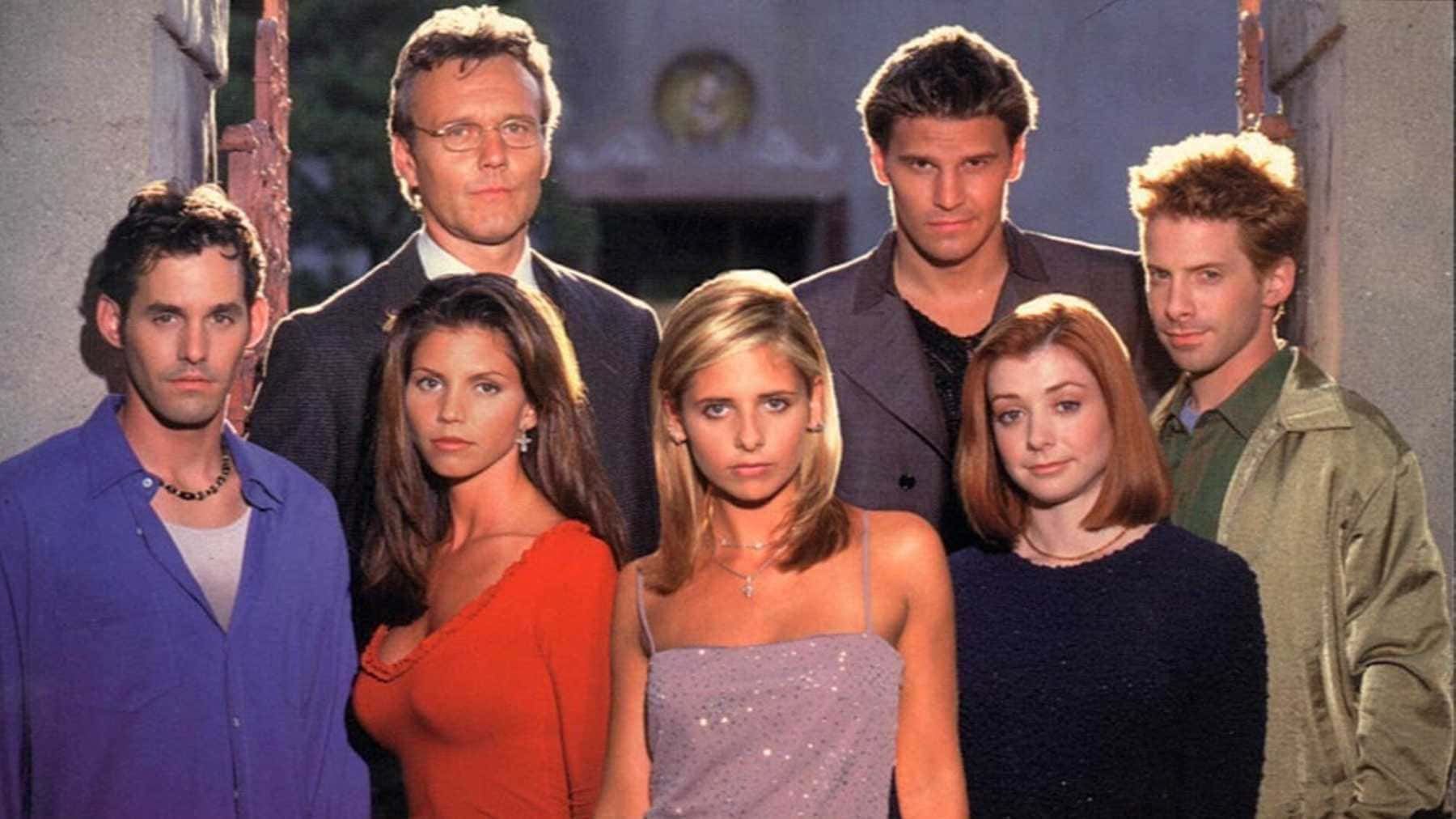Evolution of Vampires Onscreen: How 'Buffy the Vampire Slayer' changed the genre and its folklore forever

Some of the most famous vampire television series are 'Buffy the Vampire Slayer' and 'The Vampire Diaries'. And of course, the spinoffs for both the shows. However, when it comes to cultural impact one has much more of an influence, not just on the vampire genre, but also television in general.
Each week, MEA WorldWide (MEAWW) looks at how vampires have evolved in cultural depictions, be it in movies or television. Last week, we looked at Barnabas Collins from the 60s ABC show, 'Dark Shadows'. This week, we take a look at the four vampires from Buffyverse who changed the history of television.
Impact on television
Before we take a look at how vampires were crafted for 'Buffy the Vampire Slayer' and how they influenced future depictions of vampires, let's take a look at how the show changed television for good. First, there was the introduction of the original badass teenage girl in Buffy Summers (Sarah Michelle Geller).

The show, created by Joss Whedon who went on to helm the 'Avengers' franchise for Marvel, was a pioneer in terms of feminist representation. Here was a girl who could be feminine and kickass — a cheerleader by day, a vampire slayer by night. No longer did teenage girls have to be put in the corner.
Now, the concept of the Big Bad, the overarching villain of a season, is common, but it was first introduced by 'Buffy the Vampire Slayer', who made it popular. Moreover, the show also made the use of pop culture references in teenage conversations more popular. Did you know that Xander Harris (Nicholas Brendon) said "Avengers, assemble," way before Chris Evans did as Captain America? Even 'Doctor Who' fans can thank the show for the reboot which came back in 2005 and has been going strong since then.
Of course, the biggest impact 'Buffy the Vampire Slayer' had was in the way it normalized the "bad guy with a heart" story, specifically the "bad vampires with a soul" plotlines and of course, the forbidden romances. Which brings us to...
'Buffy's' vampires brought 'soul' into their stories
The concept of souls and how the lack of them made people bad was unique to 'Buffy the Vampire Slayer'. The vampires on the show did not have souls, unlike those who were artificially given souls. The most memorable example of that is, of course, Angel, aka, Angelus. After 'Buffy', nearly all TV vampires we meet have their souls in order to make them endearing to viewers.

When we first met Angel (David Boreanaz), he was a lonely, brooding man who walked around Buffy protecting her. We slowly learned that he was the vampire Angelus who was cursed with a soul by a gypsy woman.
Over the course of the first season Buffy and Angel fall in love, culminating with them sleeping together. This led to Angel experiencing pure happiness and the curse being revoked, which brought back Angelus, who was then defeated by Buffy in the season finale.
For 'Buffy' fans, the Angel-Buffy romance was one of heartbreak and of wonder, the writing was compelling and the twists unexpected. Angel went on to become the lead character in the eponymous TV show, and you can thank Angel for many of the 21st century's most famous vampires, including Edward Cullen (Robert Pattinson) of the 'Twilight' franchise and Stefan Salvatore (Paul Wesley) of 'The Vampire Diaries. Both these vampires are clearly carbon copies of Angel.
Blueprints for future vampires
There was yet another vampire who has influenced today's vampire folklore a lot, whose plotlines to this day divides many fans. Spike (James Marsters) known as "William the Bloody" when he was alive, though we first thought it was because he was a violent man, we later learn it was because his poems were "bloody awful." Spike was the antithesis to Angel.

While Angel killed for the love of evil and doing atrocious things, Spike treated it as a sport. Angel already had dark influences when he was human, which were amplified as he became a vampire. On the contrary, Spike, who was loyal and devoted when he was human, became more so when he was a vampire as we saw in his intense devotion to Drusilla (Juliet Landau).
While Angel was cursed with a soul and fell in love with Buffy when he still had that soul, Spike falls in love with Buffy while he was soulless, and strived to regain his soul to prove his devotion to her.
This yin-yang of vampires on 'Buffy the Vampire Slayer' can be seen in 'The Vampire Diaries', between Stefan and Damon Salvatore (Ian Sommerhalder). The lovesick, emo vampires we are so familiar with today exist because of Spike and Angel.

But it's not just the male vampires who have influenced future stories. We don't often see compelling female vampire characters, however, it was 'Buffy the Vampire Slayer' that can be credited with giving us Drusilla and Darla (Julie Benz). Again, we see many influences of Drusilla and Darla in both 'The Vampire Diaries' and 'The Originals' in characters like Katherine Petrova (Nina Dobrev) and Rebekah Mikaelson (Claire Holt).
Influence on vampire folklore
Much of the influence on vampire folklore comes from Bram Stoker's 'Dracula'. However, 'Buffy the Vampire Slayer' played a very modern influence on vampire folklore as well. For example, vampires turning to dust when staked was pioneered by 'Buffy the Vampire Slayer' so that the producers could save money.
Of course, while Barnabas Collins may have been the birth of the modern TV vampire that audiences could love, you can thank 'Buffy the Vampire Slayer' for making them young, brooding and sexy. Who can forget Angel's and Spike's appeal and the chemistry each of them shared with Buffy?

Then there is the concept of the sire bond — where the vampire that turns another human into a vampire has a lot of control over them. This was also introduced by 'Buffy the Vampire Slayer' and has since been used in 'The Vampire Diaries' franchise — if you Google "sire bond" and "vampires" now, the first page is filled entirely with results about Damon and Elena Gilbert (again, Nina Dobrev).
If you grew up in the '90s or the 2000s, there is no denying the impact 'Buffy the Vampire Slayer' would have had on you, whether you watched it or not. 'Buffy's' vampires created the solid foundation upon which the vampires of the 21st century are created. With a foundation that is so strong, it will influence the genre for years to come. In giving its vampires souls, 'Buffy the Vampire Slayer' gave the genre new life.
Follow MEA WorldWide's (MEAWW) weekly column on the evolution of vampires in film and television every Thursday.










